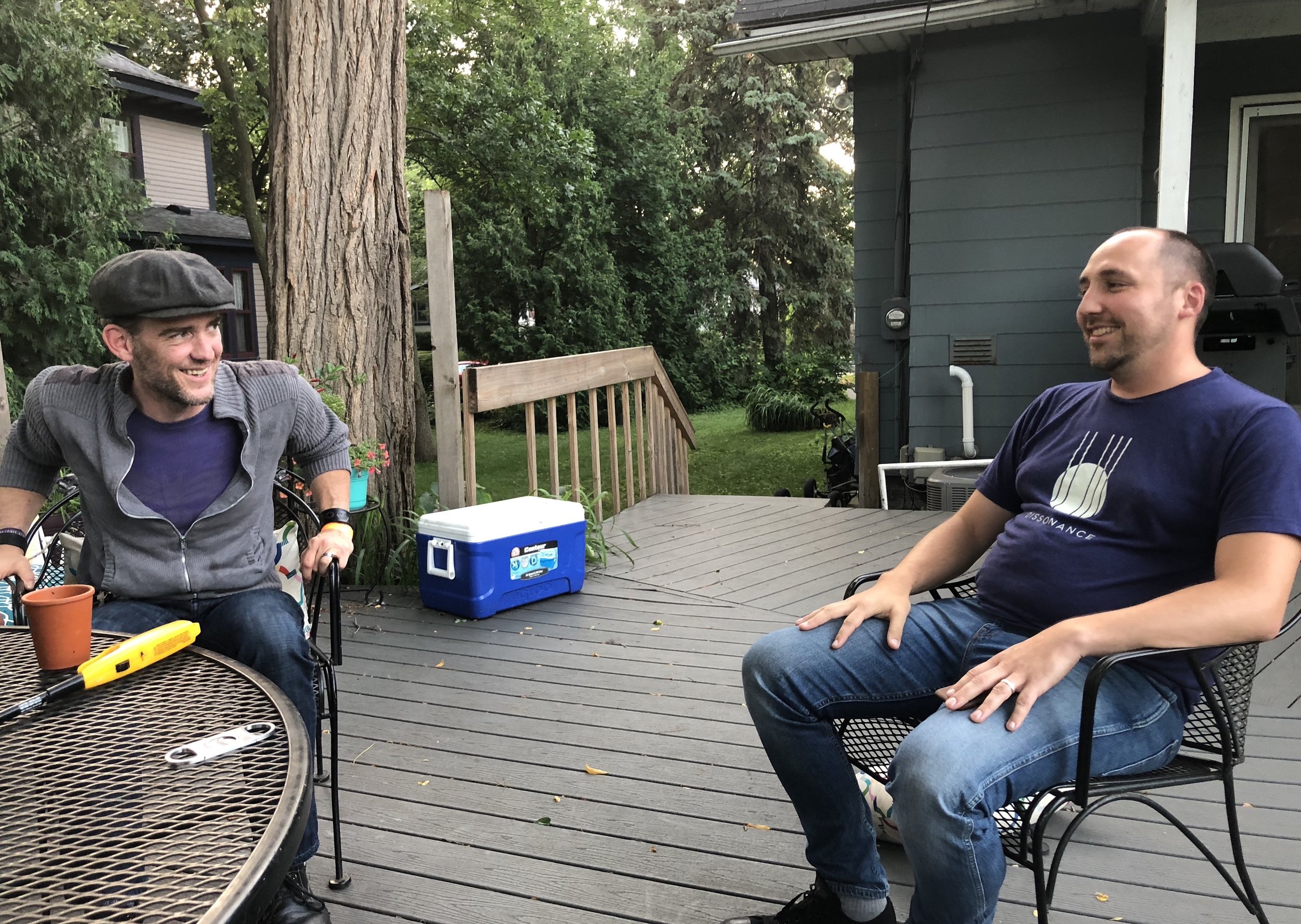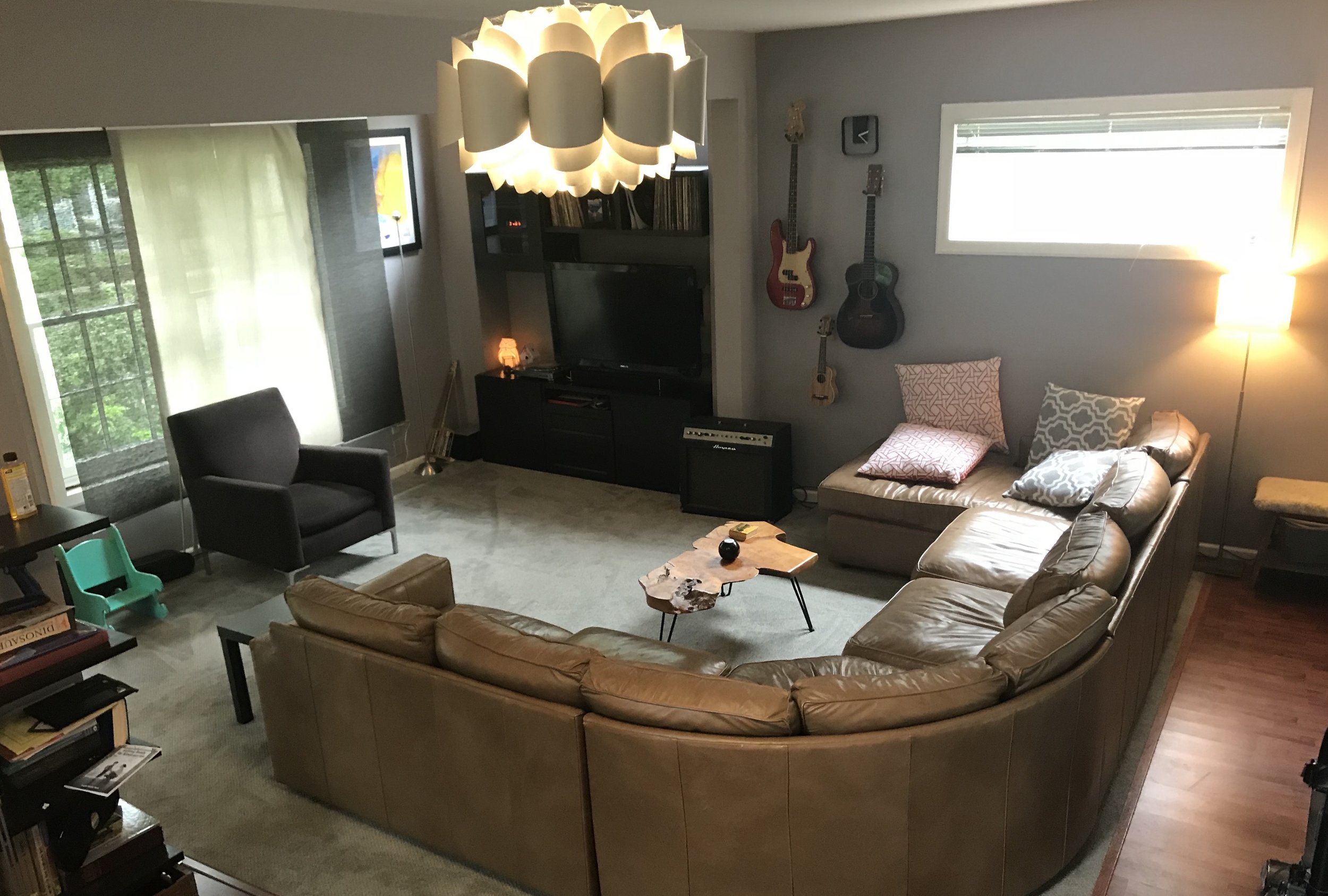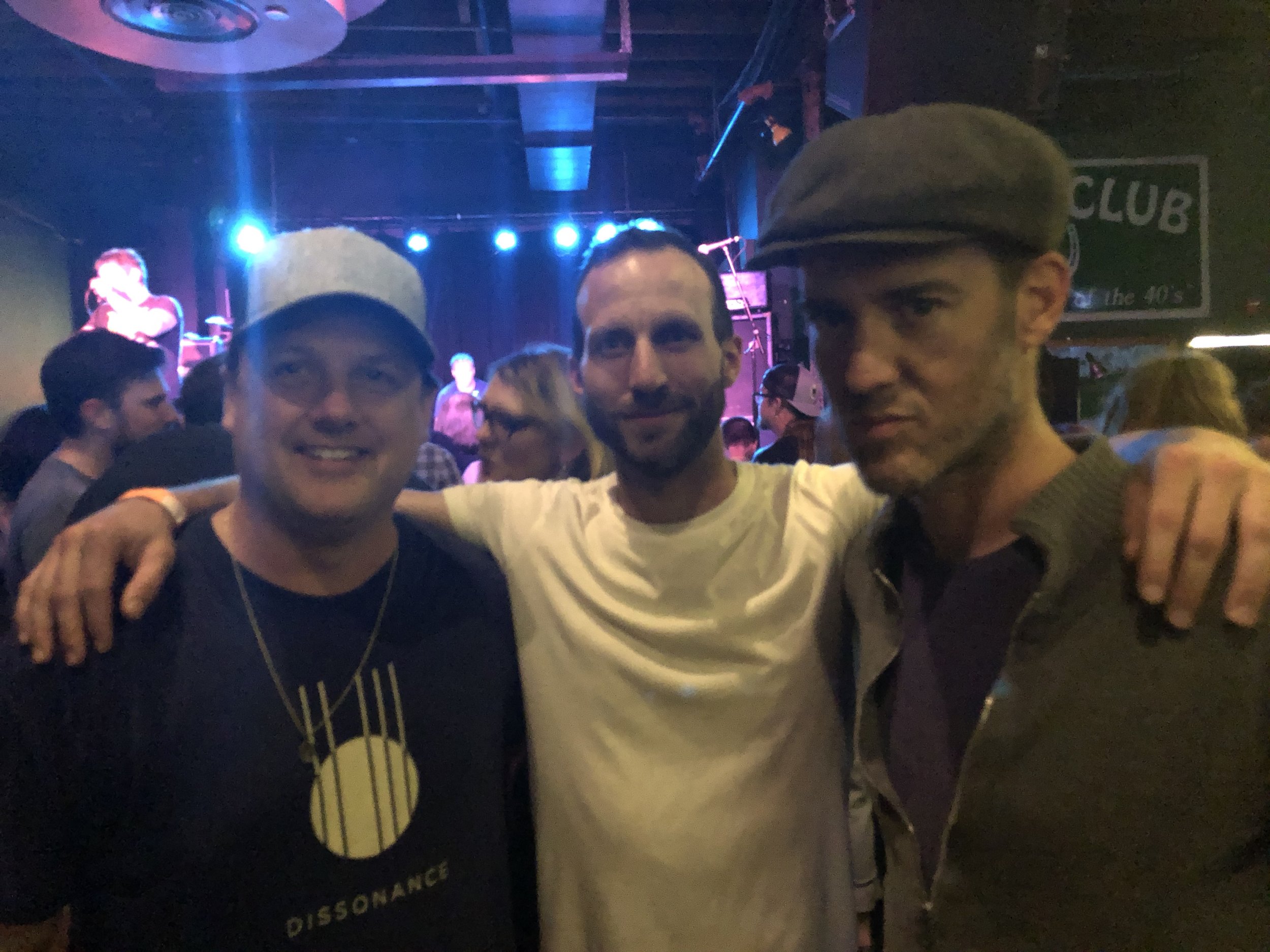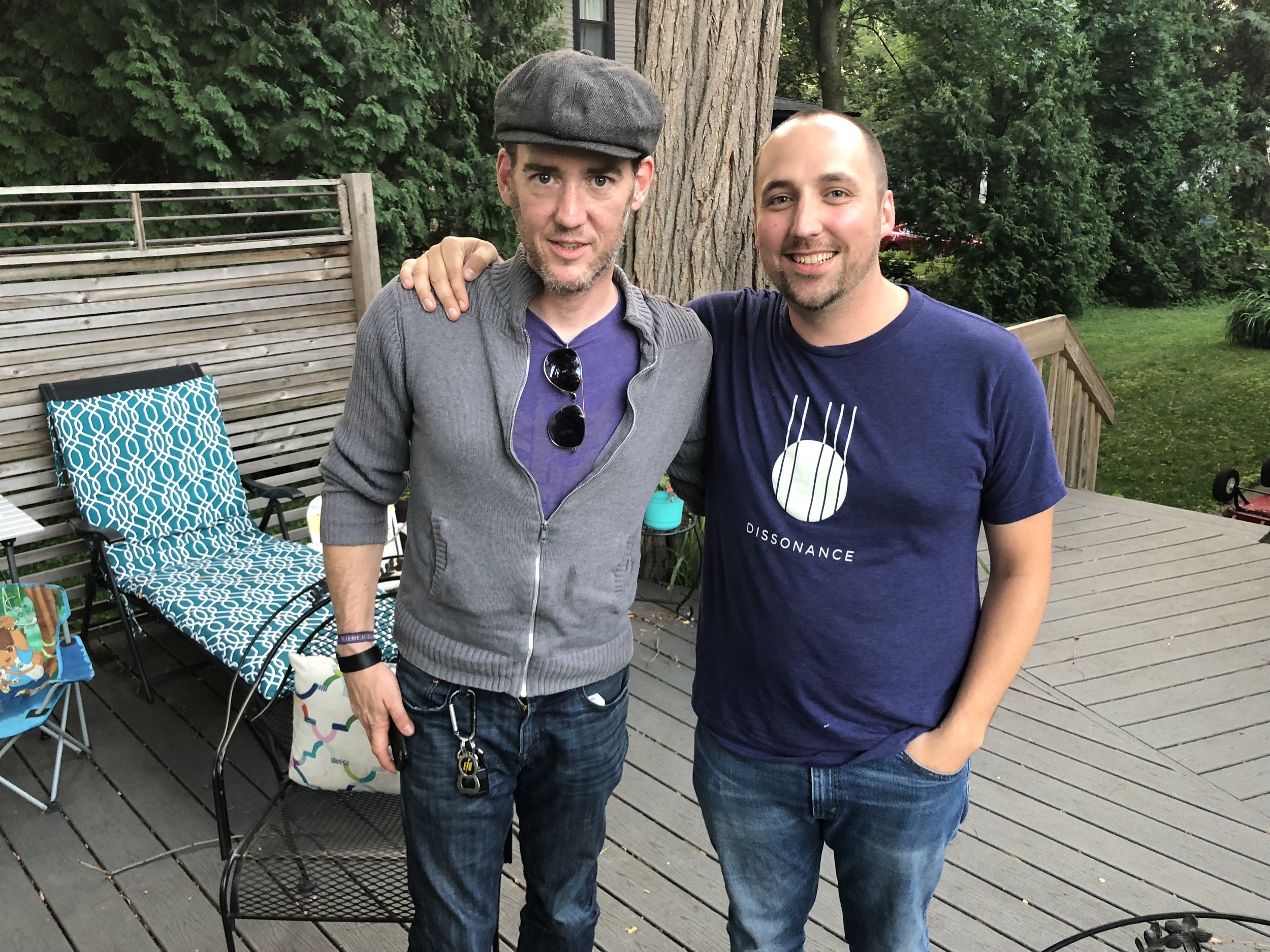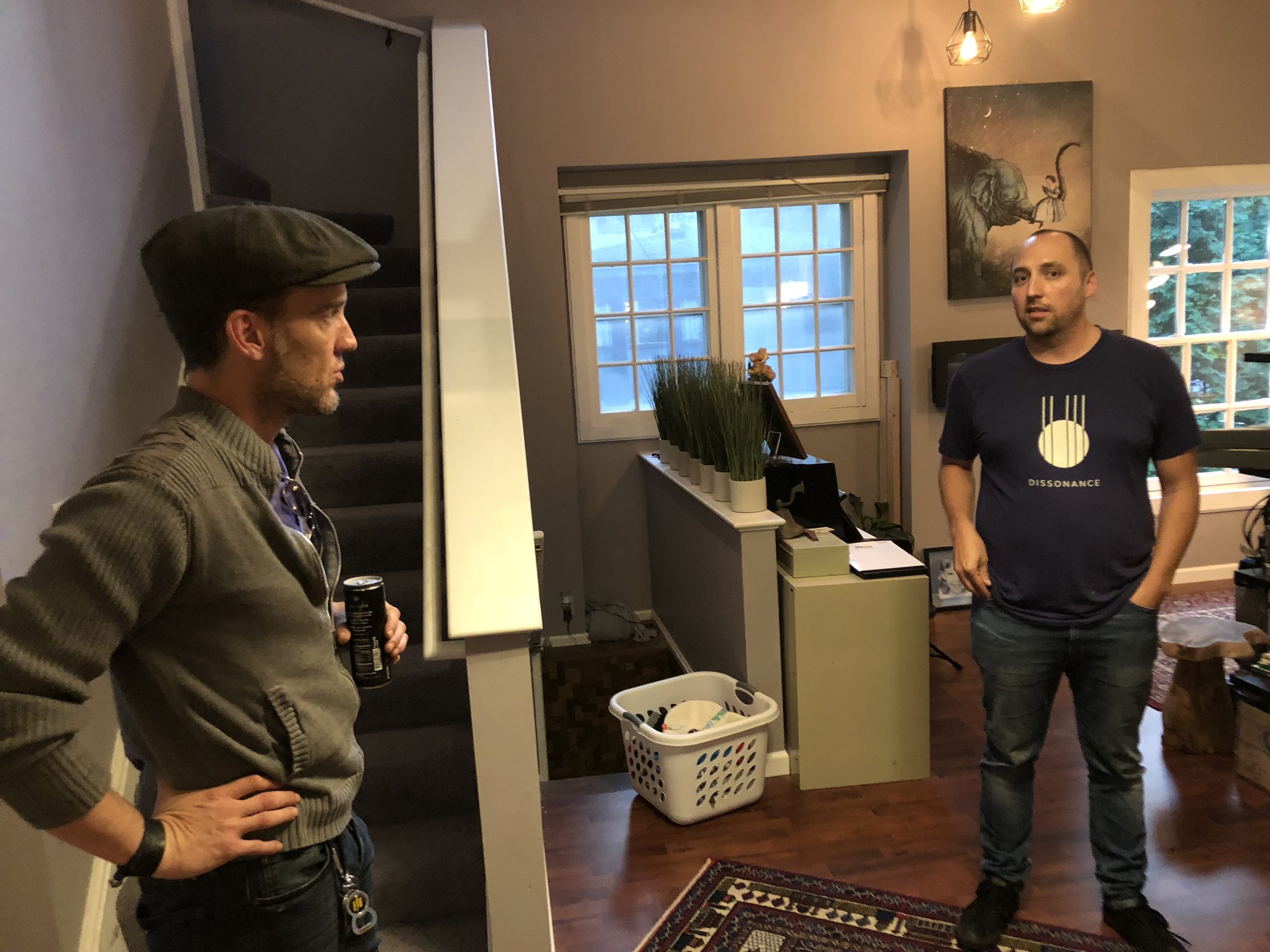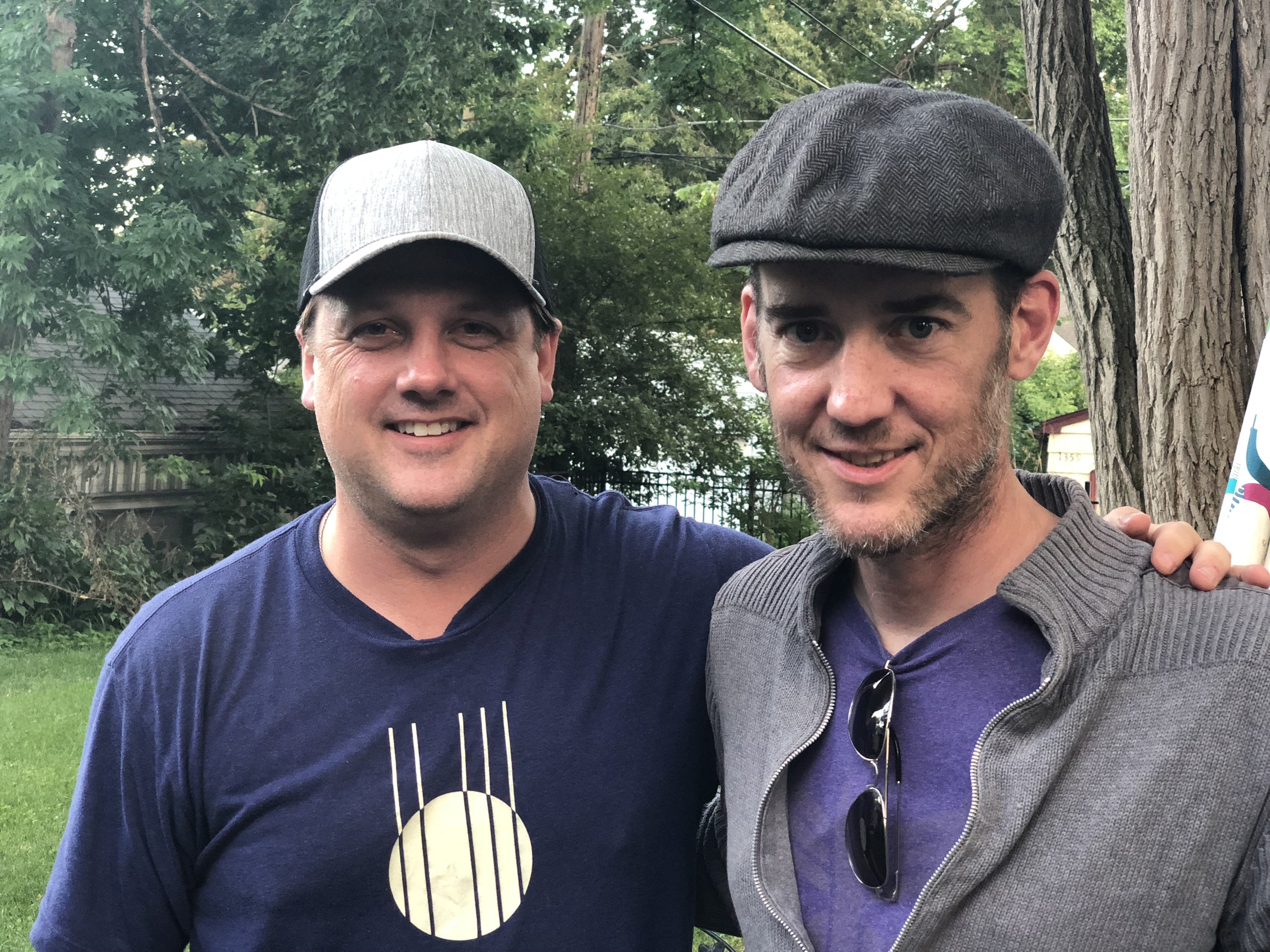The two nonprofits look to help build a national network of artist-support organizations
One of our dreams at Dissonance is to establish a national network of like-minded organizations committed to helping artists maintain wellness, share their experiences with mental health and addiction recovery, and advocate for others.
We are doing that work in the Minneapolis-St. Paul area and, to some degree, in greater Minnesota. Now, we are looking to collaborate with other individuals and organizations pursuing similar missions.
One such organization is Passenger Recovery, a nonprofit founded by Christopher Tait, keyboardist for indie rock vets Electric Six. We met with Chris when his band's tour brought him to St. Paul for a recent show (opened by our friend Mark Mallman) at the venerable Turf Club.
Sober Green Room Now Available in Twin Cities, Detroit
We whisked Chris away from the venue for a sober green room experience at the home of Jordan Hansen, a Dissonance supporter and blogger. We were actually testing out Chris's own idea. Passenger Recovery has a dedicated green-room space in downtown Detroit, available to any sober touring artist. After talking to Chris, we have decided to begin offering the same to artists traveling through Minneapolis-St. Paul, using a variety of spaces available through our local network. Chris had been on the road for a couple of weeks when we met, and he noted -- as others have to him -- how wonderful it was to get away from the van and the venue for a refreshing wellness break.
New Tool to Find Support Meetings on the Road
For us, the time with Chris also provided an opportunity to discuss Passenger Recovery's new support-meeting finder called Compass. It's an innovative, GPS-enabled tool to help traveling artists locate Alcoholics Anonymous, Narcotics Anonymous, National Alliance on Mental Illness, and Refuge Recovery (Buddhist-inspired) support meetings. The Compass database includes thousands of individual meetings, is growing every day, and likely will be expanded to include other types of mutual aid meetings as well. We’re grateful that Chris and his partner -- Electric Six bassist Matthew Tompkins -- did us the favor of making Minneapolis-St. Paul the second metro area to get populated, after Detroit. Check out the beta version of the tool and find a meeting near you, wherever you are.
On our Resources-Tools web page, we now have a link to Compass. The page also includes links for artists to request sober green rooms through us for Minneapolis-St. Paul and through Passenger Recovery for Detroit.
As we think about our dream of establishing a national network of organizations like ours, the immediate aim is to work with Passenger Recovery to create a northern corridor of artist support from Detroit to Minneapolis. We are now seeking like-minded organizations in Milwaukee and Chicago to fill in the major gaps.
We are also beginning to establish relationships with other more far-flung organizations like the SIMS Foundation in Austin, Texas, and the BTD Foundation in New Orleans. If you are involved in such an organization, or know others who are, please contact us. Let's build this national network/collective/community together.
